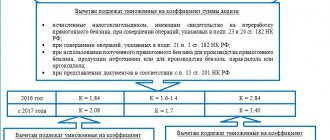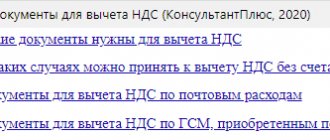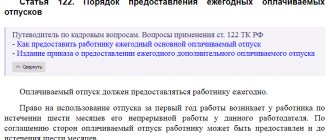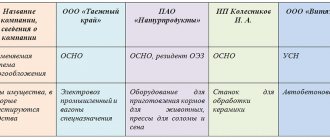The working qualifications of employees must meet strictly defined requirements - professional standards . While receiving education, the future professional must acquire a set of certain competencies, the combination of which forms the mentioned standard. Exactly the same, ideally, should be required from a specialist when applying for employment.
Why is the concept of “professional standards” needed in the modern regulatory framework? How to apply them in practice? Who will need them first? Let's try to look at this legislative innovation, which came into force in the summer of 2016.
How did you live without professional standards before?
The Labor Code uses the term “ qualification ” (Article 195), meaning by it a specific level of labor skills, special knowledge, and work experience required for a particular position. When a person was hired for a “position according to his qualifications,” this meant that he must meet the qualification characteristics of this position given in the Unified Qualification Directory (USC).
This document today is almost hopelessly outdated: many of the positions listed in it simply no longer exist, while many modern professions are not mentioned at all. “Modernizing” unified qualification reference books would be too time-consuming and impractical. A new level of eliminating this problem was needed.
It was decided to replace this regulatory framework with a more convenient and universal tool for determining the minimum qualifications - professional standards.
Professional standards and other related concepts
It is right to assert that professional standards are qualification characteristics brought into greater compliance with the demands of our time. Legislators, approving the procedure for the development and application of professional standards (Resolution of the Government of the Russian Federation No. 23 of February 22, 2013), used modernized combinations of claims to professions, having previously honed them in detail in specialized circles.
The professional standard in relation to the qualification requirement is more realistic, closer to labor reality.
IMPORTANT! The definitions of “qualification” and “professional standard” are not identical: Art. 195 of the Labor Code of the Russian Federation in paragraph 1 specifies that the professional standard is a characteristic of qualifications. The concept of “professional standard” was introduced into the Labor Code only in 2012.
A related term given in the Labor Code and other regulatory documents is “ labor function ”. Art. 57 of the Labor Code obliges the employer to indicate it in the text of the employment contract, that is, to clarify the work that the employee will have to perform within the framework of his position, which does not contradict his qualifications. Now, for this purpose, you can use the approximate definitions of positions listed in section III of the required professional standard. But then the employee must meet the set of requirements given to them.
ATTENTION! A professional standard does not define positions or even professions, but an area of activity, which is why it is more universal. For example, the “Accountant” standard provides for the same job title, and the head of the human resources department can be found in the “HR Specialist” professional standard.
I have a private company, am I required to apply professional standards?
The obligation to apply the requirements of professional standards is established for cases provided for in Articles 57 and 195.3 of the Labor Code of the Russian Federation, and does not depend on the form of ownership of the organization or the status of the employer.
But in the Information dated April 5, 2016, the Ministry of Labor recommended that state and municipal organizations conduct an analysis of employee competencies for compliance with professional standards, and, if necessary, draw up a plan for employee training and additional education within the enterprise budget.
The Labor Code establishes the mandatory application of professional standards in two cases. According to Part 2 of Article 57 of the Labor Code of the Russian Federation, the names of positions, professions, specialties and qualification requirements for them must correspond to the names and requirements specified in qualification reference books or professional standards, if in accordance with the Code or other federal laws with the performance of work for these positions, professions , specialties are associated with the provision of compensation and benefits or the presence of restrictions.
And one more rule is the new Article 195.3, which provides that the requirements for the qualifications of workers contained in professional standards are mandatory for the employer in cases where they are established by the Labor Code and other Federal Laws.
In other cases, the requirements of professional standards are advisory in nature.
Key areas of professional standards
In what specific aspects of the employment relationship should professional standards apply? The legislative framework provides for three main areas of their application.
- Work with personnel at the enterprise:
- personnel policy;
- job descriptions and their changes;
- employee pricing;
- certification;
- organization of professional development, etc.
- The connection between education and professional activity . They plan to develop educational programs taking into account professional standards, that is, the future employee will master a set of necessary and sufficient professional characteristics. Situations where a graduate in a certain specialty has one set of competencies, but the employer needs a completely different one, are unacceptable.
- Reflection of real professional experience . When developing assessment strategies for obtaining a certificate or diploma of a particular level, not educational successes, as before, will be taken into account, but the current requirements for the profession, reflected in the standards.
Register of professional standards
The Russian Ministry of Labor maintains a Register of Professional Standards (a list of types of professional activities), which is posted on the following websites:
- software and hardware complex “Professional Standards” (https://profstandart.rosmintrud.ru);
- Scientific and Methodological Center for the System of Professional Qualifications of the Federal State Budgetary Institution “Research Institute of Labor and Social Insurance” of the Ministry of Labor of Russia (https://vet-bc.ru).
These same resources contain all the information about professional standards, including those being developed and planned for development. For example, the Russian Ministry of Labor recently added to the list of draft professional standards, the development of which is planned for 2016. Professional standards for professions in the field of transport were included in the list of projects.
In addition, approved professional standards are posted in legal information reference systems.
Employers have the right to develop draft professional standards with the participation of educational organizations of vocational education and other interested organizations (clause 3 of the Rules for the development, approval and application of professional standards, approved by Decree of the Government of the Russian Federation of January 22, 2013 No. 23).
Where can I meet them?
The Ministry of Labor of the Russian Federation adopted approximately 8 hundred of the 1000 planned professional standards. The immediate plans (no later than in two years) include the adoption of 2 thousand names of standards.
Initially, they were going to start introducing them into practice from the public sector. It was assumed that commercial organizations would set themselves a set of requirements for their employees. However, this idea is considered unproductive. Federal Law No. 122 clearly states that professional standards apply to all labor spheres and enterprises of all forms of ownership:
- government agencies;
- budgetary organizations;
- commercial structures;
- non-profit associations;
- IP.
As we implement materials about professional standards, we will post them here. Follow the links at the bottom of this page.
Who shouldn't evade professional standards?
Since July 1, 2016, the use of standards has been declared an indispensable condition for all entrepreneurs, as required by the Labor Code or other documents. That is, when hiring an employee for whose field of activity the professional standard has already been approved, the employer must certainly use it, and not the qualification reference book. If the required standard for a given profession has not yet been adopted, you can still use the qualification directory.
When the positions in the EKS and in the professional standard are the same, preference should be given to the professional standard as a more modern option.
What specific requirements for an employee (according to standards or according to the Unified Social Standard) the employer will be guided by must be specified in its local legal acts.
NOTE! If the type of professional activity provides for certain benefits (for example, early retirement, payment of compensation for harm, etc.) or restrictions, then such a position must be named in strict accordance with the professional standard or EKS, if such a standard does not yet exist.
What professional standard requirements must be applied?
To get an answer to the question posed, let us again carefully study Art.
195.3 Labor Code of the Russian Federation. According to Part 1 of this article, it is mandatory to apply only qualification requirements. Moreover, this provision applies to both situations where qualification requirements are established by law and situations where there are no such requirements. Qualification is the level of knowledge, skills, professional skills and work experience of an employee (Article 195.1 of the Labor Code of the Russian Federation). A professional standard is a characteristic of the qualifications necessary for an employee to carry out a certain type of professional activity (Part 1 of Article 195.1).
If the requirements for the job function performed by an employee are established, then the professional standard must be applied in terms of these requirements. For example, a specialist who carries out the training process at the sports and recreational stage (for example, a trainer-teacher), according to the approved standard[5], is required to have a secondary vocational education in the field of physical culture and sports, and if he only has a secondary vocational education, then he needs to undergo training in additional professional programs in the field of physical education and sports, he must not have a ban on engaging in teaching activities, etc.
And in order to train a sports team of a constituent entity of the Russian Federation (by type of sport, sports discipline), that is, to be a coach of a national team of a constituent entity of the Russian Federation, you will already need to have a higher education - completing a bachelor's degree program in the field of physical education and sports - as well as work experience at least three years in the positions of “trainer”, “trainer-teacher”, or “senior trainer-teacher”, etc. If the employee does not meet the listed conditions, he cannot hold the specified position.
Having considered the restrictions for the employee (in terms of establishing mandatory requirements by the professional standard), let’s move on to the restrictions for the employer. The employer does not have the right to raise the bar above the requirements established by the professional standard. If the position of “coach-teacher” presupposes the presence of secondary vocational education, then the employer does not have the right to impose compulsory higher education on candidates for this position. And if such a requirement exists, then the position cannot be called “trainer-teacher”.
The qualification characteristics contained in the professional standard, the mandatory application of which is not established, are used by employers as the basis for determining the requirements for the qualifications of employees, taking into account the characteristics of the labor functions performed by employees, determined by the technologies used and the organization of production and labor adopted in the institution (Part 2 of Article 195.3 Labor Code of the Russian Federation).
Employers may view this provision as advisory, but should be aware of language that excludes the word “may.” It would be more correct in such cases to use the professional standard as the basis for determining qualification requirements: it should set the lower limit of these requirements. For example, if, according to the professional standard, a specialist needs to have at least three years of work experience, then the employer may also require five years of work experience. But establishing requirements for work experience, for example, from one year, is unacceptable - the employee will not meet the declared level of qualifications.
| Qualification requirements are established | Qualification requirements are not established | ||||
| Employer requirements | = | Professional standard requirements | Employer requirements | ≥ | Professional standard requirements |
Heads of budgetary organizations should take into account the provisions of Part 1 of Art. 4 of Law No. 122-FZ, according to which the Government of the Russian Federation can establish the specifics of the application of professional standards in terms of requirements that are mandatory for use by state or municipal institutions.
The Ministry of Labor began developing such a project on August 4, 2015[6]. At the time of preparation of the material for publication, a public discussion of the legal acts took place, the document was sent for anti-corruption examination. It is expected to come into force on 07/01/2016.
How to start applying professional standards?
Here are step-by-step recommendations for employers.
- Open the list of professional standards published on the official website of the Ministry of Labor of the Russian Federation.
- Write down the names of positions from your staffing table.
- Find the standard that matches each job on your list. To do this, you need to look at whether the competencies specified in the standard correspond to your requirements for a particular position. So, for IT specialists there are about 27 professional standards, and you need to study which of them your IT specialist will correspond to.
- Compare HR documents with approximate job titles from the text of the professional standard. If this position does not have benefits, compensation or restrictions, it is not necessary to name it according to the standard.
- If the standard you need is not yet in the registry, ask when it will be adopted; you may have to switch to it soon anyway.
- If your employee’s qualifications do not meet the professional standard, you as an employer can choose one of the following options:
- dismiss an employee based on the results of certification;
- organize his vocational training.
IMPORTANT INFORMATION! An employee’s non-compliance with the professional standard is a violation of the Labor Code, which provides for the responsibility of the employer: a cake maker cannot “make boots.”
Job description and professional standard
We will briefly show how to use the professional standard when drawing up a job description, using the position of a procurement expert as an example.
Step 1. If it is necessary to use a professional standard or management has decided to use the collection as an “assistant”, check whether a suitable one is in the registry.
Reference. The collection contains DI templates for a small number of positions and professions; the found text should be taken as a basis. In other cases, the existing DI is processed in accordance with the professional standard.
IMPORTANT!
The name of the required position or profession must be found in Section III of the document. If you are required to apply professional standards, and the existing job title does not correspond to the proposed one, the staff unit will have to be renamed. This rule is especially important for receiving benefits, compensation and payments.
Step 2. Taking into account the specifics of the enterprise and position, the necessary corrections are made. DI based on the professional standard is drawn up taking into account the requirements and recommendations of the following documents:
- GOST R 7.0.97-2016;
- provisions of Ch. 43 Labor Code of the Russian Federation;
- articles of association;
- local acts of the company.
Step 3. The job description has a completely traditional structure. The presented options for job description forms in accordance with professional standards differ in the placement of the “must know” and “must be able” blocks.
In the first case, they are summarized from the description of each labor function and are located in the general part.
In the second, the necessary knowledge and skills are given point by point, in relation to each job function; the structure of the job description according to the professional standard is as follows:
Qualification requirements, length of service requirements and admission conditions, regardless of their location in the labor market, in the professional standard should be found in Section III “Characteristics of generalized labor functions.” For the position “Procurement Expert” (professional standard 08.024), they are located at the beginning of section 3.2 of the standard.
The first section of the DI usually contains the following information:
- purpose of the document;
- the procedure for appointing an employee to a position and dismissing it;
- subordination;
- requirements for the candidate’s education and qualifications, his experience and skills.
This part is developed taking into account internal LNA and looks like this.
Step 4. Section 2 of the DI lists job functions. For the position of “procurement expert” they are summarized in section II of the professional standard - code B of the table.
Step 5. Job responsibilities in section 3 of the DI are detailed in accordance with the professional standard methodology - the content of each labor function is revealed through labor actions.
In our example, the procurement expert performs two job functions:
- Examination of the procurement procedure.
- Examination of the execution and results of contract execution.
In the professional standard, the decoding of function 2 is as follows.
In the DI, the developer should record a list of actions that the employee performs. If necessary, the employer expands it at his own discretion. The job description in the example used is as follows:
Step 6. The rights of an employee that he has within the framework of his powers are described traditionally - they indicate the rights of access to information, the procedure for interaction with employees of the enterprise, etc. Use the wording of the professional standard (description of labor actions). The “liability” part contains standard wording (if necessary, additional information is included, for example, about financial liability).
Step 7. The final part provides the procedure for approval and entry into force of the DI, and the procedure for making changes. This section contains a link to the standard used and its details.
| 4. Rights The procurement expert has the right: 4.1. Participate in discussions of draft decisions of the organization’s management, in meetings on their preparation and implementation. 4.2. Request clarifications and clarifications from your immediate supervisor regarding instructions and assignments issued. 4.3. Request, on behalf of the immediate supervisor, and receive from other employees of the organization the necessary information and documents necessary to carry out the assignment. 4.4. Get acquainted with draft management decisions relating to the function he performs, with documents defining his rights and responsibilities for his position, and criteria for assessing the quality of performance of his labor functions. 4.5. Submit proposals for the organization of work within the framework of their labor functions for consideration by their immediate supervisor. 4.6. Participate in discussions of issues related to the duties performed. 4.7. ……… (other rights) 5. Responsibility 5.1. The procurement expert is held accountable: - for improper performance or failure to fulfill their official duties provided for by this job description - in the manner established by the current labor legislation of the Russian Federation, legislation in the field of procurement; - for offenses and crimes committed in the course of their work activities - in the manner established by the current administrative and criminal legislation of the Russian Federation; - for causing damage to the organization - in the manner established by the current labor legislation of the Russian Federation. 5.2. ……… (other liability provisions). 6. Final provisions 6.1. This job description has been developed on the basis of the professional standard “Expert in the field of procurement”, approved by Order of the Ministry of Labor and Social Protection of the Russian Federation dated September 10, 2015 No. 626n, taking into account ……… (details of local regulations of the organization). 6.2. The employee is familiarized with this job description upon hiring (before signing the employment contract). The fact that the employee has familiarized himself with this job description is confirmed by ……… (by signature on the familiarization sheet, which is an integral part of this instruction (in the journal of familiarization with job descriptions); in a copy of the job description kept by the employer; in another way). 6.3. ……… (other final provisions). |
ConsultantPlus experts examined whether it is possible to include requirements from several professional standards in one job description. Use these instructions for free.
Possible sanctions from the labor inspectorate
Employers were informed of the need to switch to the requirements of professional standards a year before Federal Law No. 122 came into force. Thus, the Ministry of Labor theoretically assumes that all entrepreneurs in the country are actively involved in the implementation of professional standards. If this is not the case, so much the worse for them.
From July 1, 2016, the labor inspectorate has the right to check compliance with the law in this area, and if the Labor Code contains any requirements for the qualifications of employees, then professional standards must be applied according to them without exception. Administrative liability can range from 30 to 100 thousand rubles.




